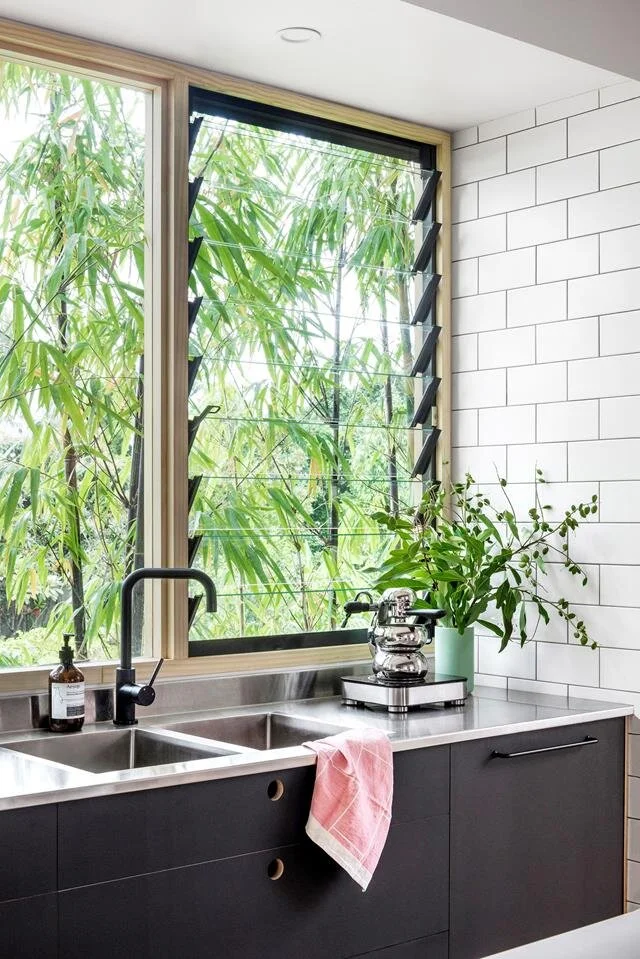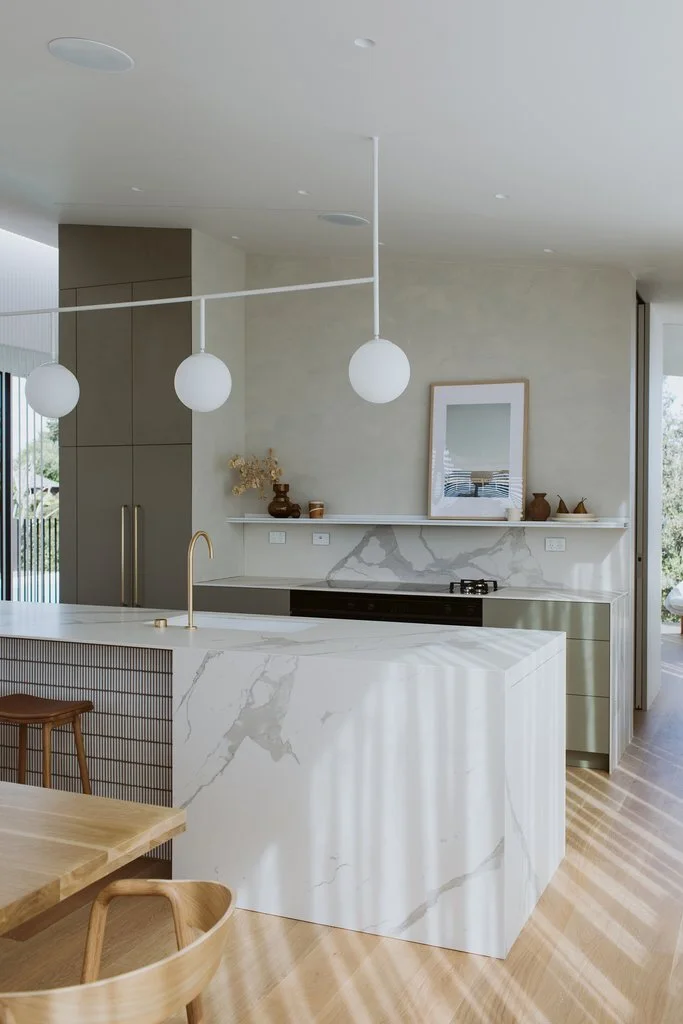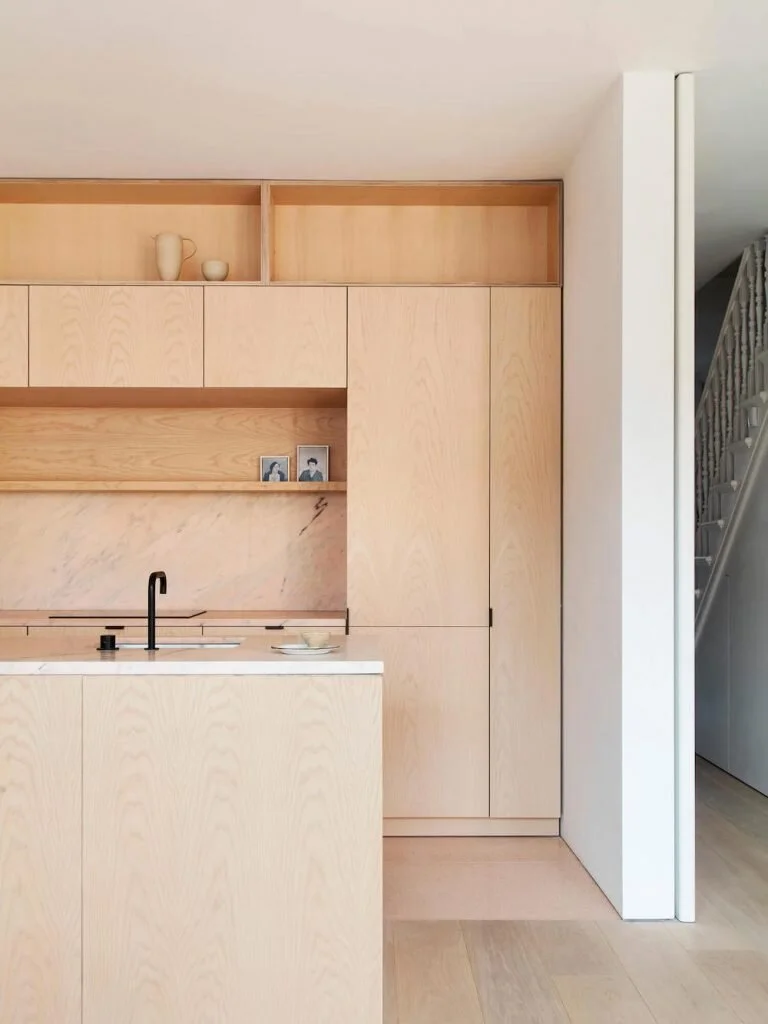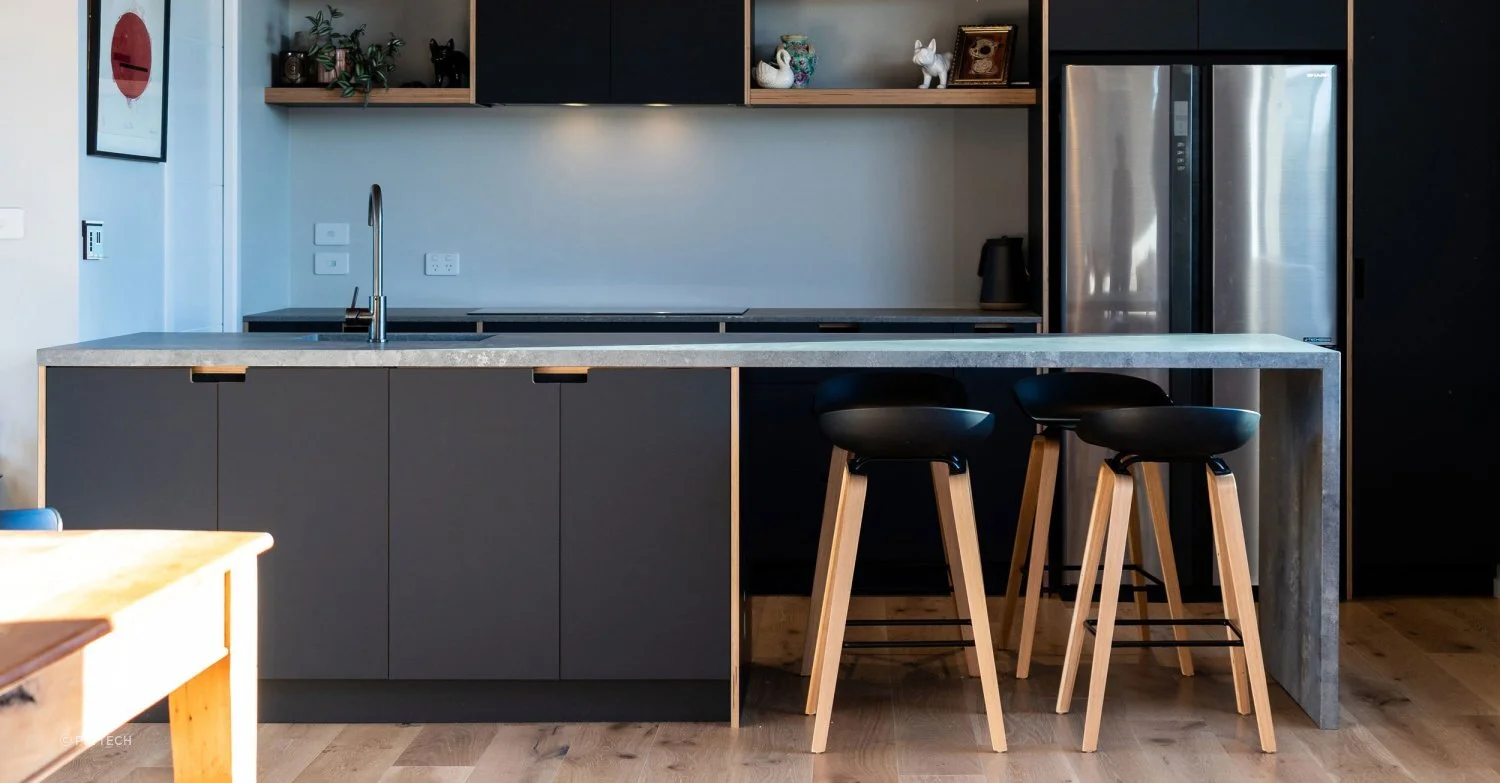Choosing Healthy Materials For Your New Home’s Kitchen
As you all know, kitchens are often referred to as the “heart of the home”. Kitchens are essential to our daily lives, there are so many products on the market, but are they actually healthy for us? There are some materials that are excellent choices, which not only tick our aesthetic goals, but are safe for our families.
Benchtops
Stainless Steel
Is an excellent choice for kitchen benchtops. It is extremely durable (it will not crack, chip or break), very low maintenance and will last a lifetime. They are truly a quality investment.
You can easily clean spilt liquids (such as wine) and staining foods (beets or blueberries) without worrying about permanent damage. Meanwhile, the surface will retain its shine and smooth surface for years to come. You can even polish out scratches if they see heavy use.
Next, stainless is safe for food and can be considered a “green” material. Non-porous, bacteria and other contaminants can’t seep into the surface. The non-porous surface makes it easier to clean and disinfect, and ensures you always know you’re working with a food-safe surface.
Stainless steel is also a sustainable choice for interior building surface applications because it produces no VOC emissions.
Stainless steel is 100 percent recyclable and doesn’t take a huge amount of energy to fabricate. The result is that stainless steel benchtops have a smaller carbon footprint than many other countertop materials.
Porcelain
The newest and arguably most impressive benchtop material on the market are porcelain panels. Made from all-natural pressed porcelain and available in large-format slabs, it’s practically impervious to damage, doesn’t stain and doesn’t etch, and is completely UV stable, so can even be used outdoors. And because it’s strong, it can be produced in thinner profiles than other benchtops - 6mm and 12mm, as compared to the standard 20mm. This makes it perfect for modern design treatments, and light enough for vertical applications like splashbacks.
Aesthetically, its a beautiful, pure surface material, but its also versatile, coming in styles that recreate the look of a wide range of materials, such as raw concrete and natural stone looks.
Porcelain is free of formaldehyde, free of volatile organic compounds ( VOCs), porcelain tile is non-flammable, so it can be heated to extremely high temperatures and will not burn, produce smoke, or give off toxic fumes.
Cabinetry
Ply Cabinetry - Formaldehyde Free
Whether you are looking at a raw look or HPL laminate Ply, there are some great, eco friendly options on the market. 2 brands we recommend are below:
Plymasters' brand new, eco-friendly PurePly range. Offering three different veneers — maple, birch and a pre-finished birch that comes with a clear lacquer already applied to save time and cost — this exciting range combines both innovation and sustainability and is the first of its kind in New Zealand.
Plytech offer a renewable, wood-based, non-toxic alternative to fossil-based glue systems.
This new lignin-based glue significantly reduces the carbon footprint of our plywood products all the way from production to final end-use applications without compromising quality or technical performance.
They offer both timber veneer and HPL options.




